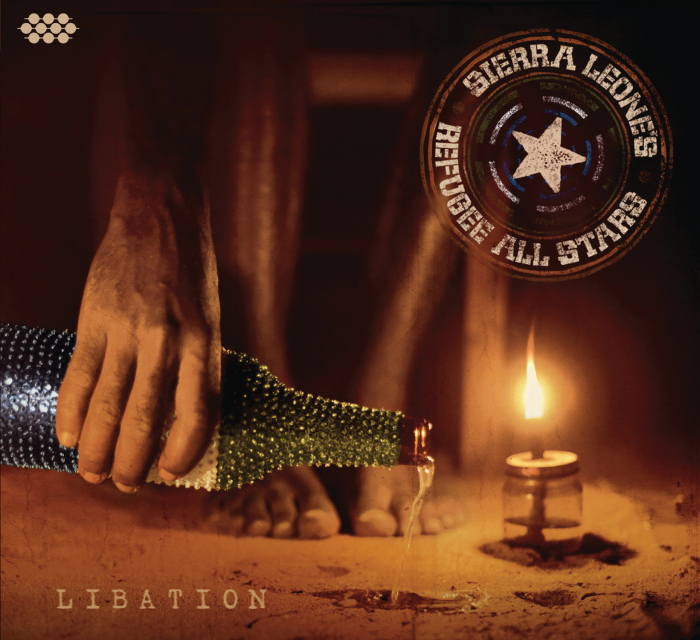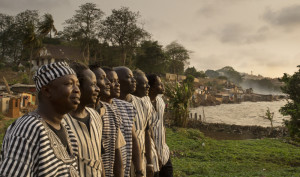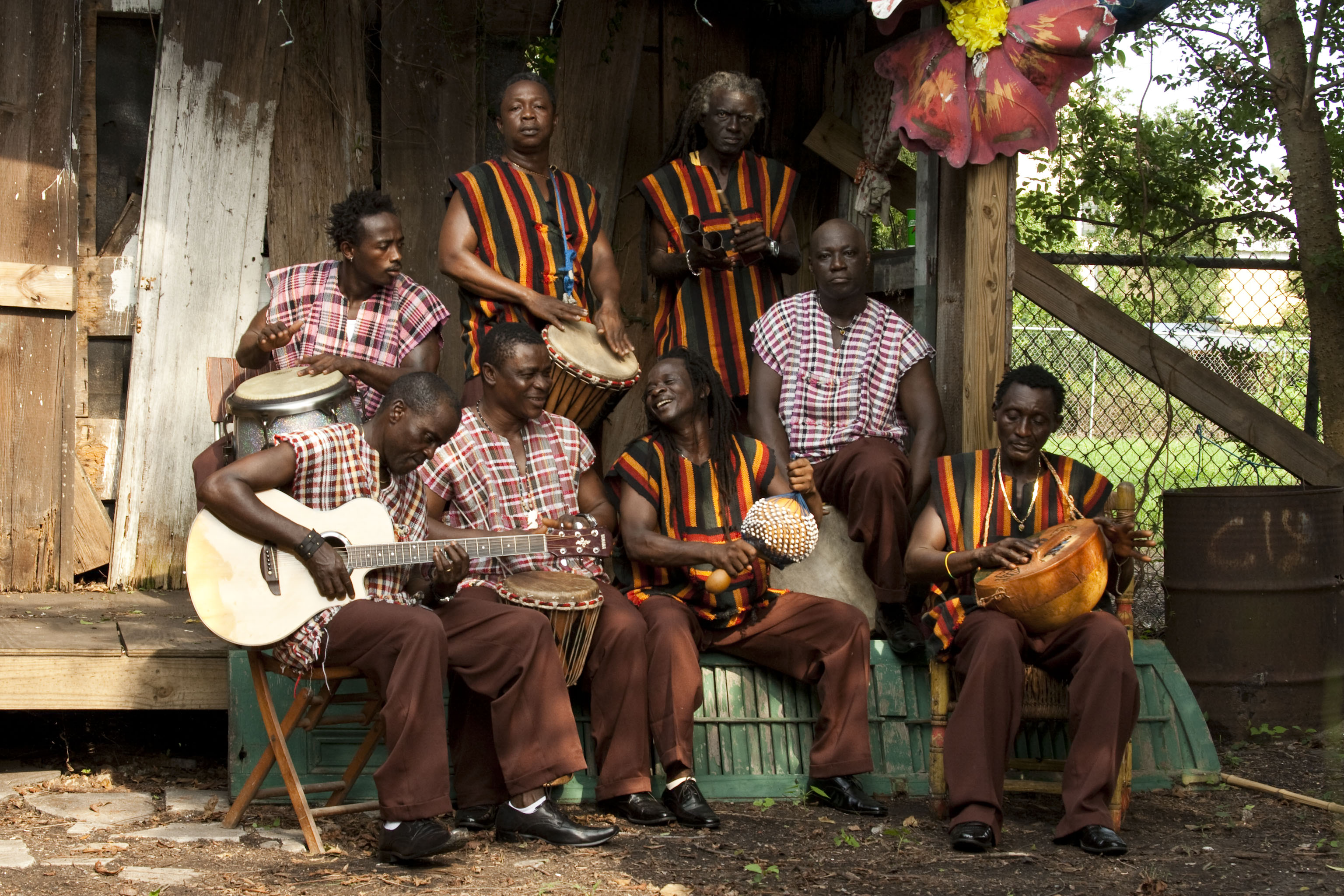Sierra Leone’s Refugee All Stars are bringing the spirit of West Africa to the Bay Area next week. The group is on tour promoting their fourth album Libation and raising money and awareness to help the people of Sierra Leone combat the Ebola virus. The All Stars will play alongside Black Nature Band, a side project of All Stars band member Black Nature. Together they will offer positive vibes and harmonious musical stylings that appeal to the inner dancer and humanitarian in all of us.
Nearly a decade ago, San Francisco based filmmakers, Zach Niles and Banker White, encountered Sierra Leone’s Refugee All Stars in Sembakounya Camp in Guinea. The Freetown natives had formed their band in a previous refugee camp during Sierra Leone’s decade-long civil war. Niles and White were so inspired by the band that they decided to travel with them for three years filming how they spread joy to fellow refugees in camps around West Africa.
When the war ended in 2002, the band moved back to Freetown and connected with other refugee musicians who became part of the band’s rotating group of members. Niles and White released their documentary, Sierra Leone’s Refugee All Stars in 2005. The film resulted in an album, Living Like a Refugee, and a subsequent U.S. tour that established the band on the global music scene.

Libation pays respect to their beloved country and the band’s four “fallen soldiers,” who passed away from illness and various other maladies. A libation is an offering to a god or spirit to honor the ancestors and the memory of loved ones who have died. The album is a celebration of ten years together, a chance to remember those who have joined the ancestors and a hope for success in the future.
It’s quite remarkable how the All Stars use music to remain optimistic in the face of grave tragedies like war and now, Ebola. Misfortune is a regular occurrence for so many Sierra Leoneans and West Africans. Bandleader Reuben Korma says, “So we are troubled, but we are used to it. We can overcome our sadness and bring happiness to the people.”



